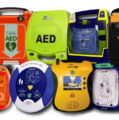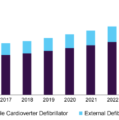


KOTA KINABALU: Increased training in CPR (cardiopulmonary resuscitation) and AED (automated external defibrillator) operation should be undertaken to reduce sudden cardiac arrest casualties in Sabah, according to Health and People’s Wellbeing Minister Datuk Frankie Poon Ming Fung.
Based on the 2018 Statistics Department data, heart attacks were the main cause of deaths in Malaysia in 2017, with 37 deaths per day.
With the data on obesity, hypertension, diabetes, and smoking, he said that these are the leading causes that raise the risk of heart attack and sudden cardiac arrest, which are among the highest in Malaysia.
He also stated that other typical occurrences in Malaysia, such as accidents, trauma, drowning, electric shock, and choking, contributed to the statistics of sudden cardiac arrest.
When presiding at the Sabah Heart Safe: Community Mass CPR and AED Training Program launch at Likas Sports Complex here yesterday, he remarked, “Many of these casualties may have been saved if CPR treatment and the use of AED equipment were done immediately by rescuers in the community.”
“In Malaysia, the possibility of surviving a sudden cardiac arrest outside of a hospital is lower than one percent. Life expectancy in developed nations is estimated to be more than 25%,” he continued.
The number of CPR providers in society and the number of AED devices available in the community are also crucial considerations, according to Poon.
“In many developed nations, CPR is taught from the first year of college. CPR is mandated to be taught in schools in 38 states in the United States, and AEDs are also required in those schools,” he stated.
“Community awareness of CPR in developed nations is significantly higher than in Malaysia.
For example, in the United States, data reveal that about 20% of the public is familiar with CPR.
“In the case of a ‘sudden cardiac arrest’ outside of a hospital, 46% of cardiac arrest patients get CPR before emergency help arrives.
“Survival chances in developed nations, such as ‘sudden cardiac arrest’ outside the hospital, are markedly higher because of these factors,” he explained.
Source: theborneopost.com








